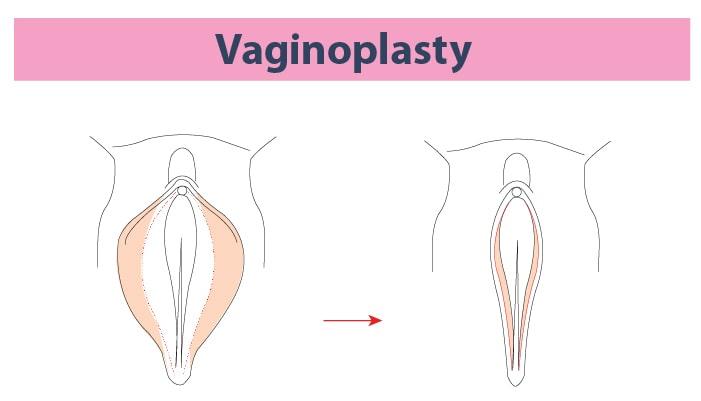Dos And Don'ts After Getting a Vaginoplasty
February 10, 2023
Vaginoplasty is usually performed on women to repair their vagina after radiation therapy or other reasons. Another reason is transgender individuals or non-binary people who undergo gender confirmation surgery. This surgery removes excess tissues in the vagina. There are many precautions to be taken care of after vaginoplasty to reduce the risks of infection or damage to the newly designed vagina.
What is vaginoplasty?
The vagina or the birth canal is a muscular canal that is an important part of the female reproductive system. It includes the removal of extra skin and stitching the loosened tissues of the vagina. This surgery leads to the construction of the vagina between the rectum and urethra.
Current technologies used for vaginoplasty
- Penile inversion surgery: It is a part of gender affirmation surgery that includes the removal of male external genitalia and reconstruction of the vagina using the skin of the penis and scrotum.
- Robotic surgery: This involves a multi-arm procedure where the lateral arms help in easy dissection of the skin around the vagina (a narrow space) and takes less time, thus reducing the chances of neuropathy.
Importance of vaginoplasty
Individuals undergo vaginoplasty due to the following reasons:
- Repair of childbirth defects
- Recover from trauma
- Excision of the vagina after cancer treatment and radiation therapy
- Gender affirmation surgery
- Congenital anomalies in the vagina of women
Recovery after vaginoplasty
An individual's recovery from vaginoplasty can take a couple of weeks to a couple of months. The recovery time depends on the type of surgery and an individual's health. It is mandatory to take care of certain factors like sitting, bathing, activities, and diet for fast healing. Expect bleeding and vaginal discharge for the next 4-8 weeks.
Dos
- Activity: Go for a walk for a while to improve blood circulation. Relax your body by slower breathing practices and lie down on the bed for a while.
- Sit on a doughnut ring of the tire to provide comfort to your body and lower abdomen.
- Cold compress: Apply ice every hour (15-20 minutes) after the surgery for one week to reduce inflammation.
- Consume prescribed medications regularly.
- Check incisions: Examining the incisions regularly will help you measure recovery post vaginoplasty.
- Vagina dilator: Surgeons suggest the use of a vaginal dilator to stretch the insides of the vagina.
- Hygienic conditions: Keep the vagina clean and dry till the incisions heal. Use sanitary napkins during bleeding.
- Balanced diet: Consume a high-fibre-rich diet like fruits and vegetables to reduce chances of constipation.
- Use a spray bottle with water: Keep a spray bottle with you when you urinate. Spraying a small amount of water will provide relief from the pain.
Don’ts
- Stress: Vaginoplasty results in swelling, itching and soreness in the vagina. Stress can slow the healing process.
- Bathing: Avoid taking showers for eight weeks to reduce the chances of suture damage.
- Strenuous activities: Don't perform strenuous activities like hiking, running, rock climbing, or weight lifting for six weeks.
- You must avoid sex, swimming and cycling for three months after the surgery to avoid any damage to the sutures and newly constructed vagina.
- Avoid consumption of tobacco and alcohol for the one month because they affect healing time.
Risks and complications related to vaginoplasty
Although vaginoplasty is a safe procedure, there are some risks associated with it:
- Rupture of sutures
- Vaginal prolapse
- Fistula (an abnormal connection between the vagina and urinary tract)
- Infection
- Clitoral necrosis
Conclusion
In some individuals, vaginoplasty can result in many risks: fistula, nerve injury, vaginal stenosis, or numbness. Thus, it is really important to take all the necessary precautions after the surgery. You must abstain from sex for 2-3 months to completely heal the vagina. If you have any queries about the procedure or complications, contact a doctor to get professional medical advice.
Request an appointment at Apollo Spectra Hospitals. Call 1860 500 2244 to book an appointment
You must visit your doctor immediately for early diagnosis if you notice excessive bleeding, yellowish discharge from the incision or blood clots.
No, vaginoplasty differs from valvuloplasty because the former includes reconstruction of the vagina, while the latter reshapes the outer part of the vagina, the vulva.
To undergo vaginoplasty, an individual must be an adult, i.e. above 18 years of age in India
NOTICE BOARD
CONTACT US
CONTACT US
 Book Appointment
Book Appointment


.svg)
.svg)
.svg)
.svg)








